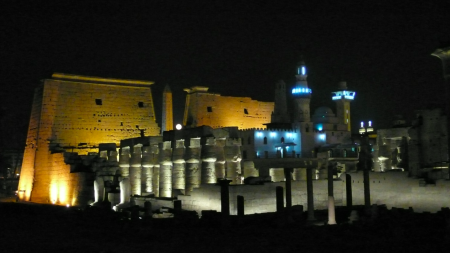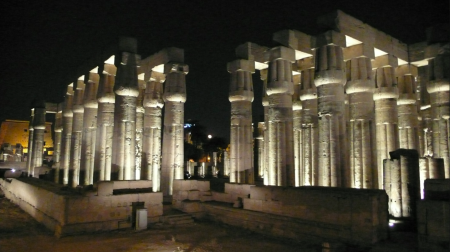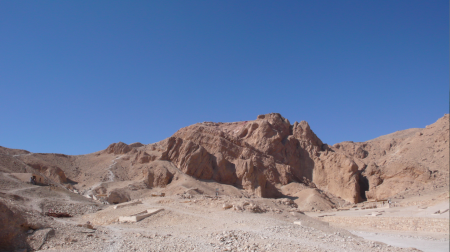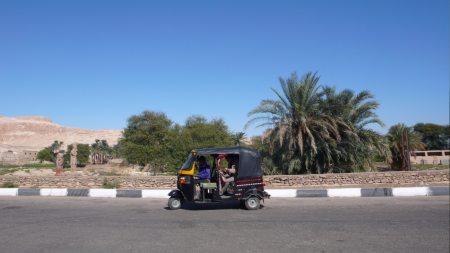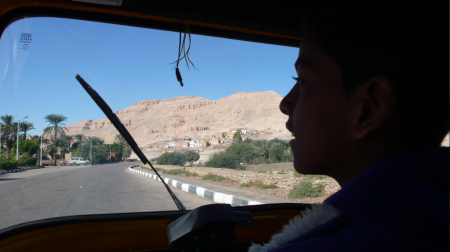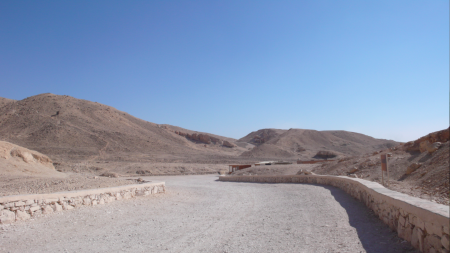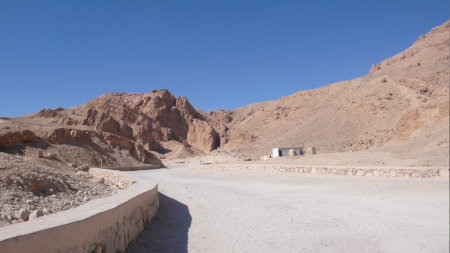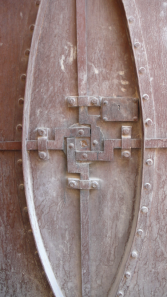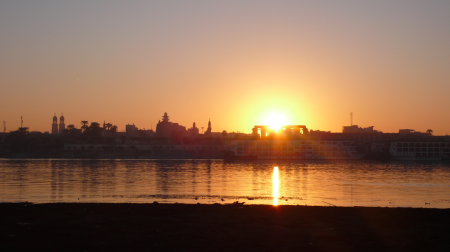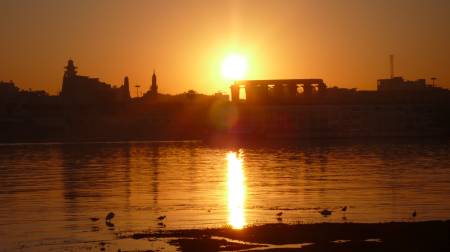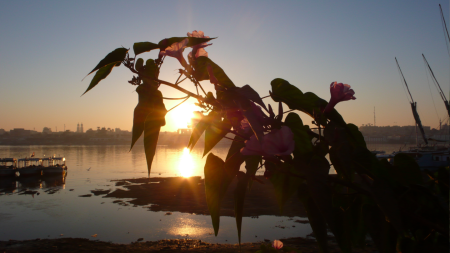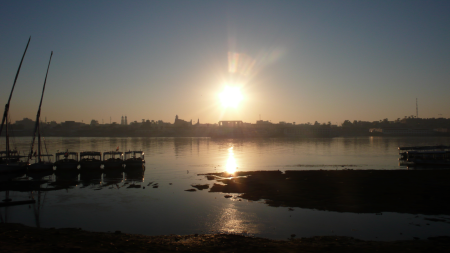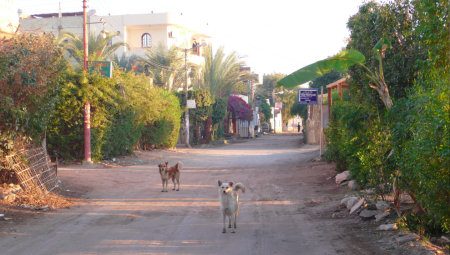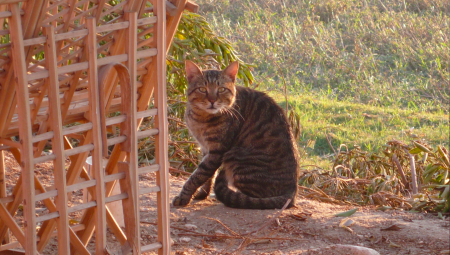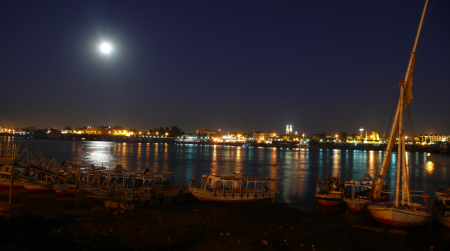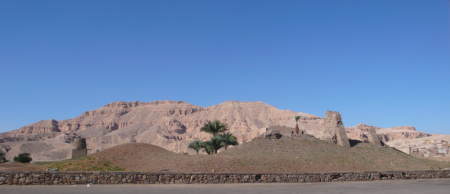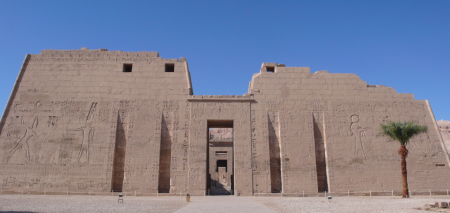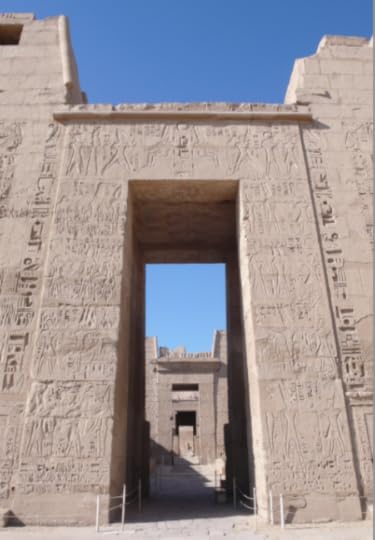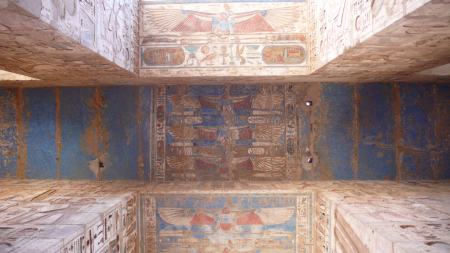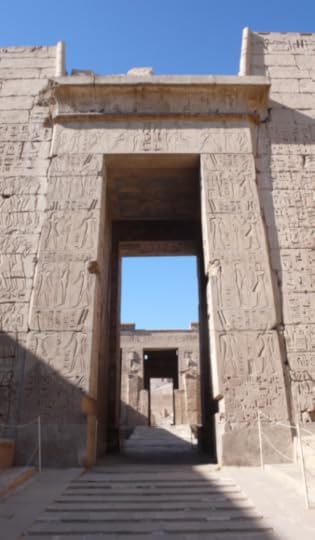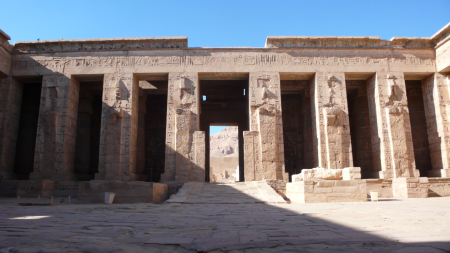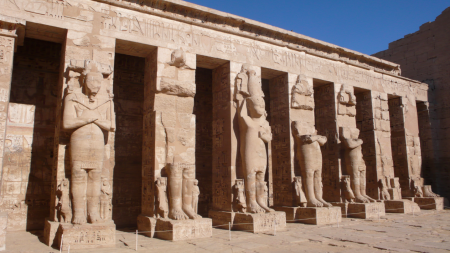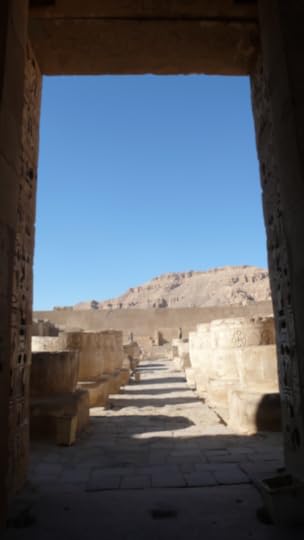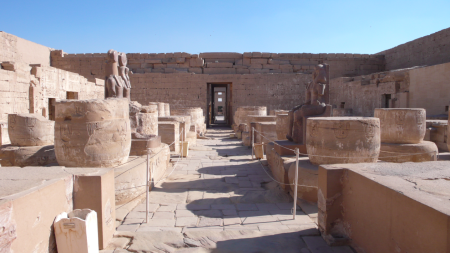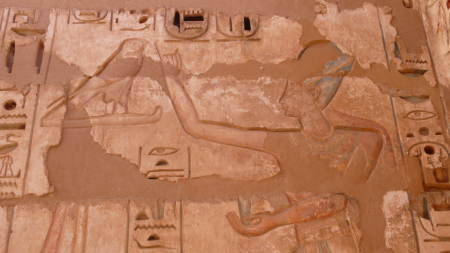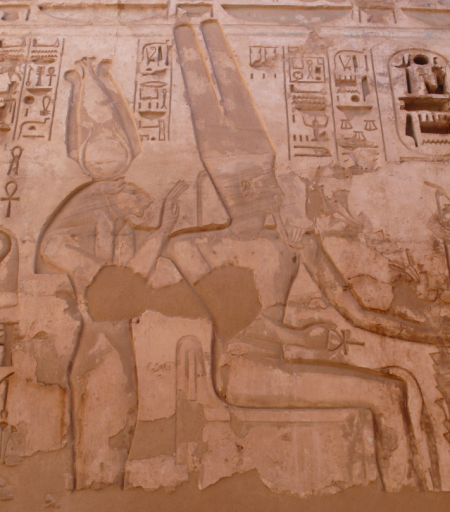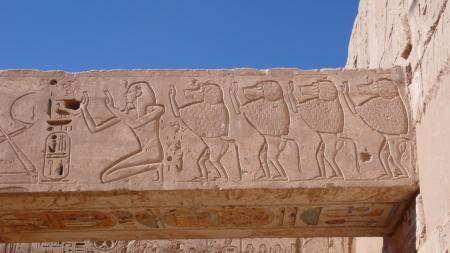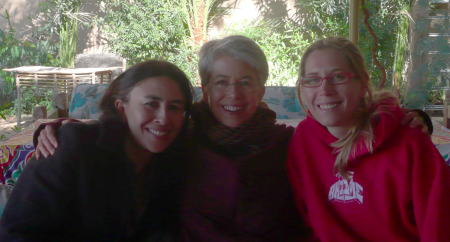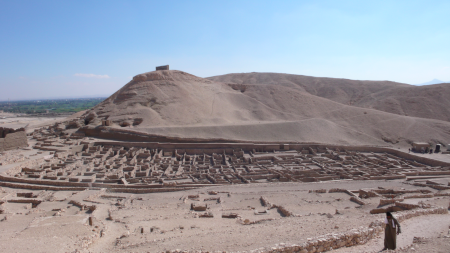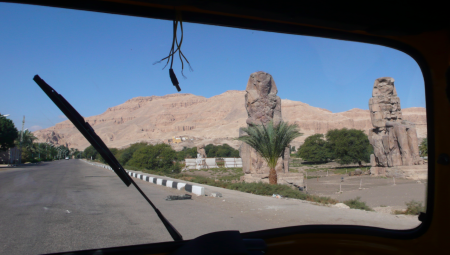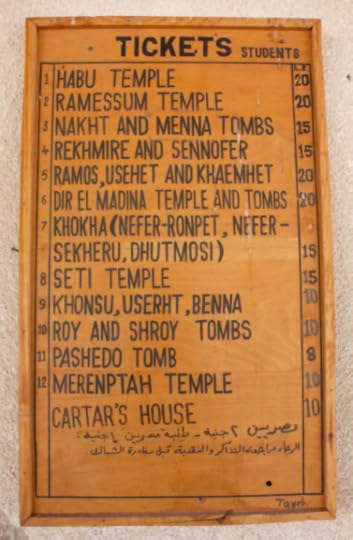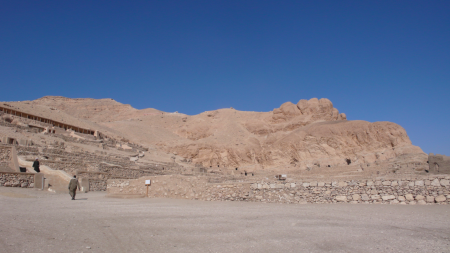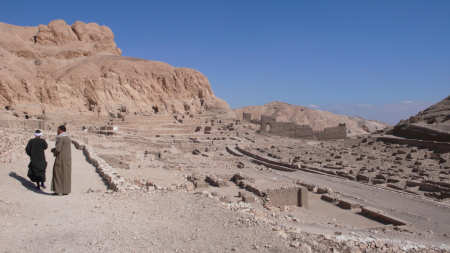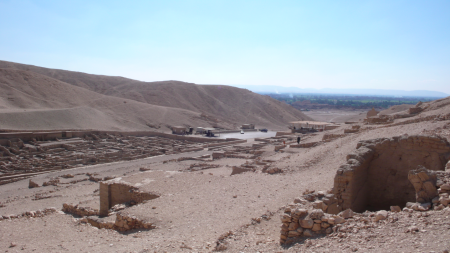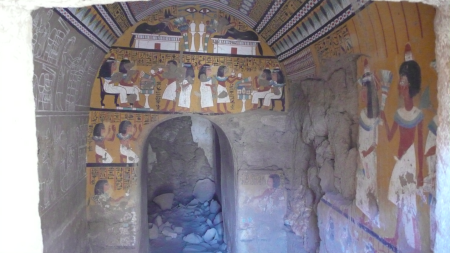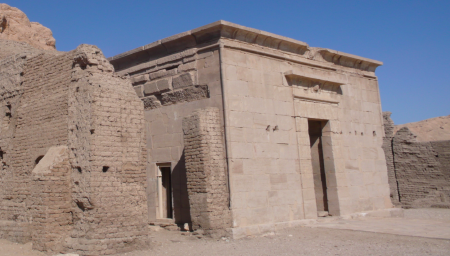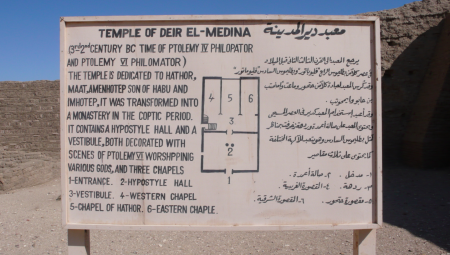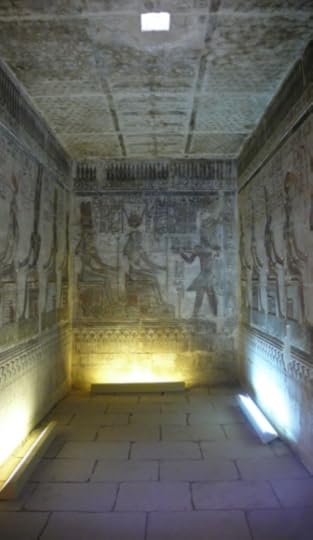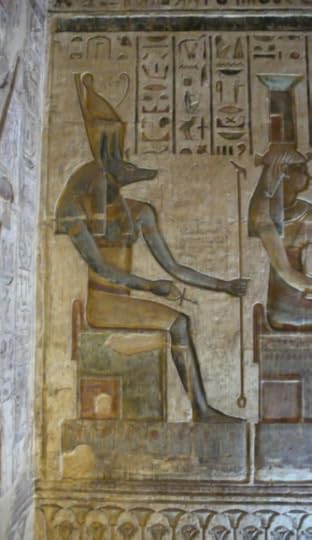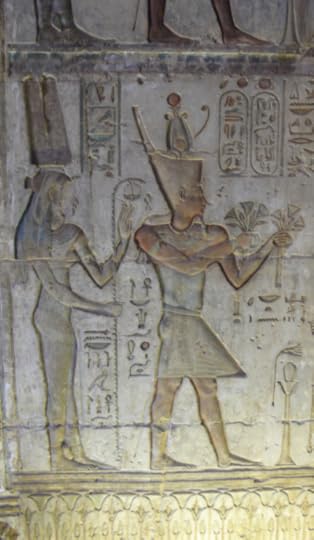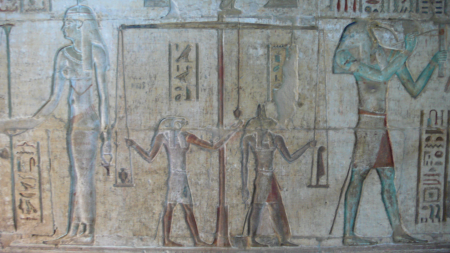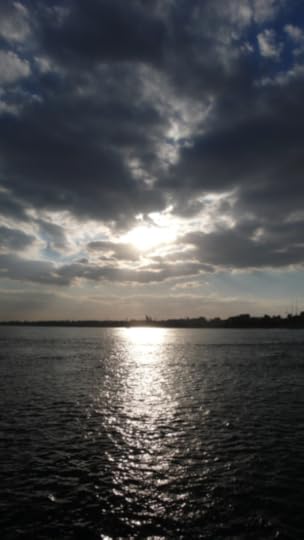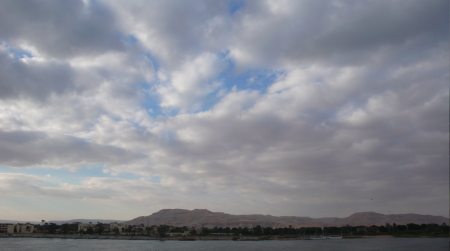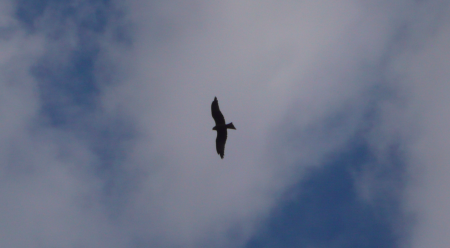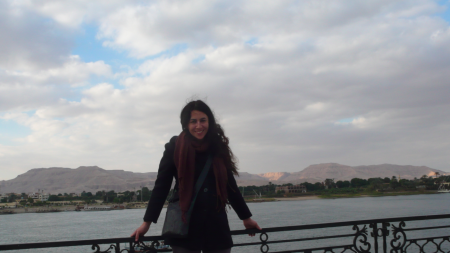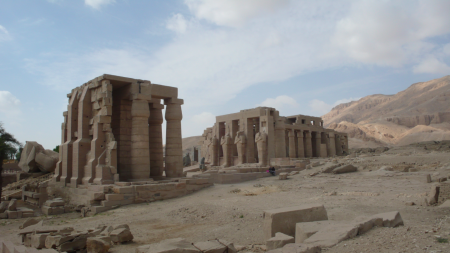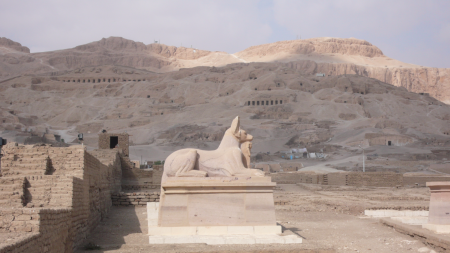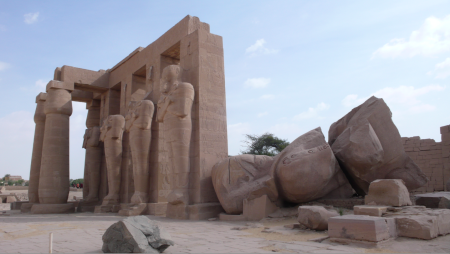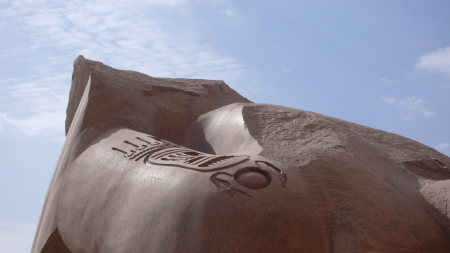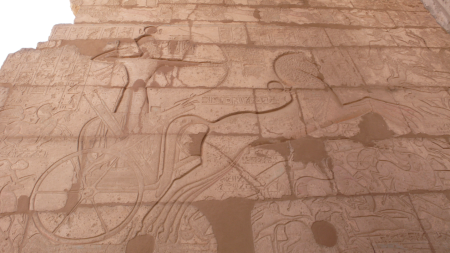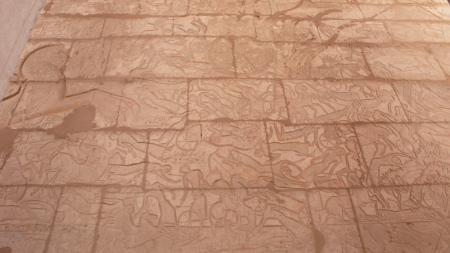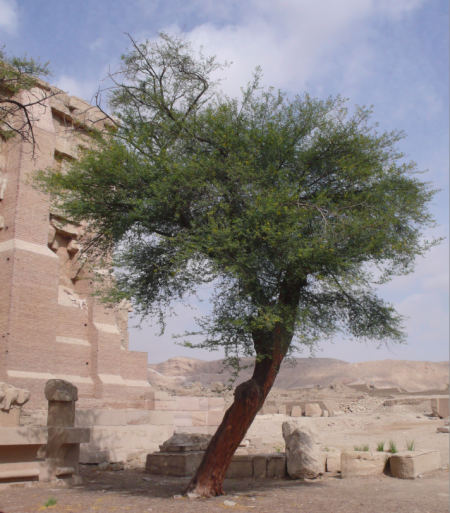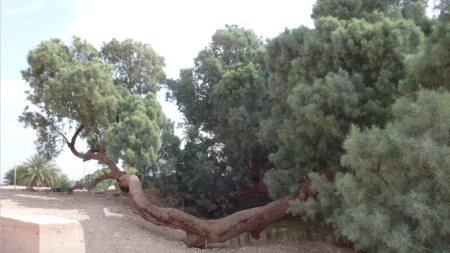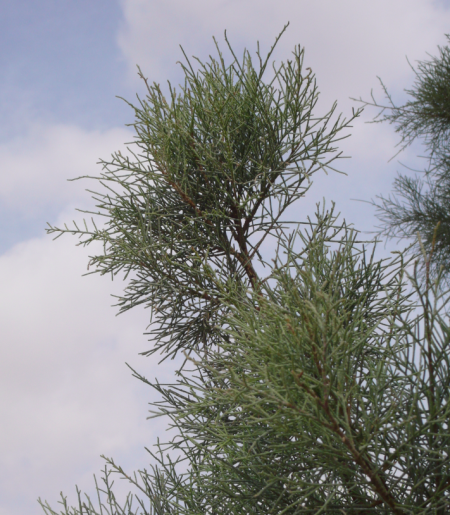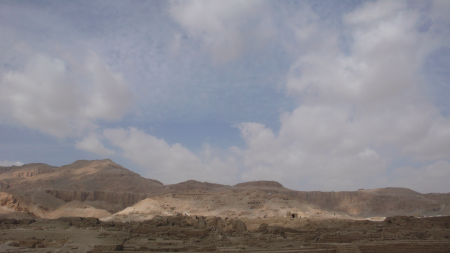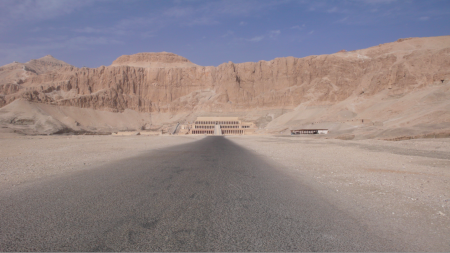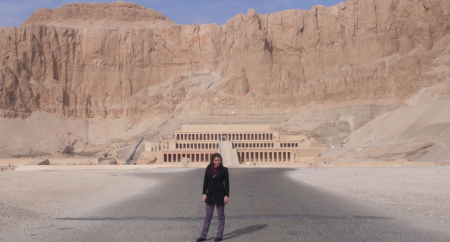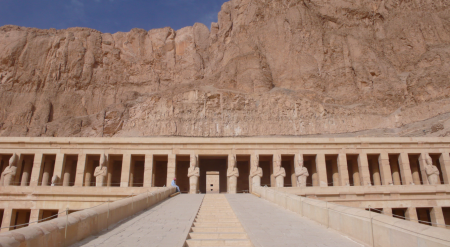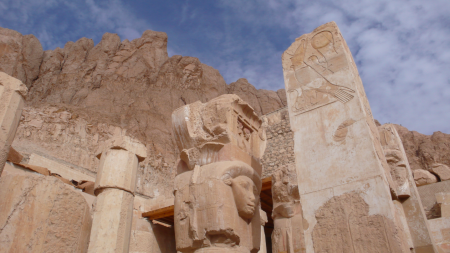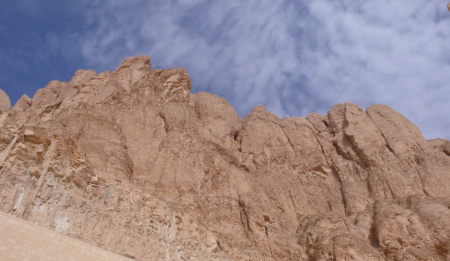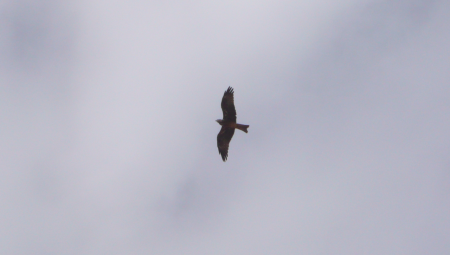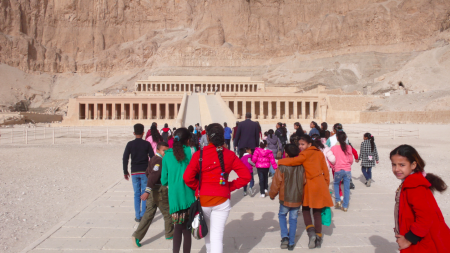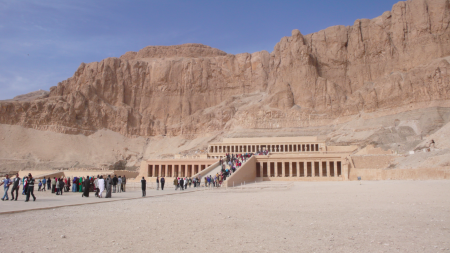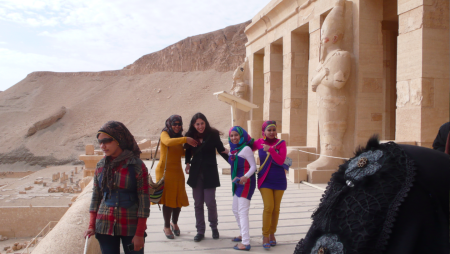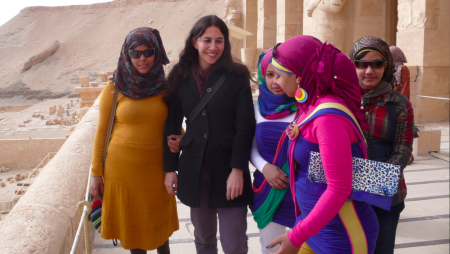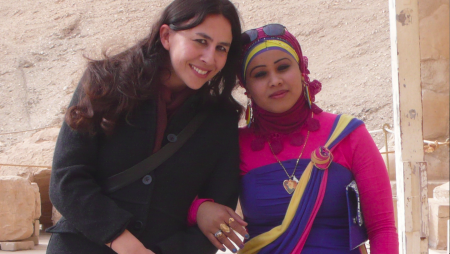Dominique Navarro's Blog, page 22
December 25, 2013
HAPPY HOLIDAYS!
HAPPY HOLIDAYS! Thanks to everyone for LIKING AUC Press Nature Foldouts! Hope you spend your holidays with family, friends and loved ones, no matter what species they are!
Filed under: AUC Press Nature Foldout Update








December 16, 2013
Moon in the Midst of Luxor Temple
Valley of the Queens
Hidden in the mountains, just beyond Deir el-Medina, is the Valley of the Queens. Tourists buses are more likely to frequent the more popular sites like the Valley of the Kings as they rush tourists from one site to another in a few brief hours, and the Valley of the Queens is one which is often overlooked.
I took a tuk-tuk (a new addition to the streets of Luxor) up this morning, and found myself, once again, a lone tourist.
The Valley of the Queens is a place in Egypt where wives of Pharaohs were buried in ancient times. In ancient times, it was known as Ta-Set-Neferu, meaning –”the place of the Children of the Pharaoh”, because along with the Queens of the 18th, 19th and 20th dynasties (1550–1070 BCE) many princes and princesses were also buried with various members of the nobility. The necropolis holds more than seventy tombs, many of which are stylish and lavishly decorated, including the tomb of Queen Nefertari (1290–1224 BCE) of the 19th Dynasty. However, Nefertari’s and most of the tombs are closed to the public, and there are currently only three that are open for visitors: Titi, Amenherkhopshef, and Kahemwaset. However, those three are extremely stunning, set into the beautiful mountain.
A door to one of the tombs: such a clever lock system and beautiful.
Of course, there are no photos allowed within the tombs. However, there are some good sites describing the tombs in detail, including some photographs and diagrams:
http://www.touregypt.net/featurestories/khaemwasett.htm
http://www.touregypt.net/featurestories/amenherkhepshef.htm
http://www.touregypt.net/featurestories/tyti.htm
Filed under: Related Stories & Photos








Morning, Luxor Egypt
Full moon over Luxor and the River Nile, Egypt
Medinet Habu in the Afternoon
A favorite temple to visit on the west bank of Luxor, at the foot of the massive gebel (mountains), is Medinet Habu, the Mortuary Temple of Ramesses III.
It contains more than 75,350 sq ft of decorated wall reliefs, abundant with animal gods and hieroglyphic fauna.
Excavation, recording and conservation of the temple has been facilitated in chief part by the Architectural and Epigraphic Surveys of University of Chicago’s Oriental Institute, almost continuously since 1924. I had lunch with a couple artist friends from the Epigraphic Survey team today…
Filed under: Related Stories & Photos








December 15, 2013
Deir el-Medina, The Place of Truth
Deir el-Medina (Arabic: دير المدينة) is an ancient Egyptian village which was home to the artisans who worked on the tombs in the Valley of the Kings during the 18th to 20th dynasties of the New Kingdom period (ca. 1550–1080 BC). The settlement’s ancient name was “Set Maat” (translated as “The Place of Truth“), and the workmen who lived there were called “Servants in the Place of Truth”.
On the way to Deir el-Medina this morning in a tuk-tuk, passing the Colossi of Memnon.
At the ticket office…
View from the empty parking lot of Deir el-Medina. Once again, I am a lone tourist here.
In 1922 a team led by Bernard Bruyère began to excavate the site. This work has resulted in one of the most thoroughly documented accounts of community life in the ancient world that spans almost four hundred years. There is no comparable site in which the organisation, social interactions, working and living conditions of a community can be studied in such detail.
During their days off the workmen could work on their own tombs, and since they were amongst the best craftsmen in Ancient Egypt who excavated and decorated royal tombs, their own tombs are considered to be some of the most beautiful on the west bank.
Filed under: Related Stories & Photos








December 14, 2013
Clouds over Luxor
December 12, 2013
Moments from the Ramesseum
A few lovely photos from the Ramesseum today… the light was gorgeous, the gebel cast in shadows at times, and sculptures illuminated brightly.
Anubis guards the temple.
Massive fallen sculptures – one can only imagine the thunder with which they fell.
As was customary, the pylons and outer walls were decorated with scenes commemorating Pharaoh Ramesses II’s military victories with much importance placed on the Battle of Kadesh (ca. 1285 BC), probably the largest chariot battle ever fought, involving perhaps 5,000–6,000 chariots.
The bodies of men and horses are strewn chaotically beneath the hooves of the Pharaoh’s mighty horse!
A gorgeous Acacia nilotica.
A really lovely example of Athel tamarisk اتيل. In olden times, and still today, the little leaves are gathered and spread beneath the body of loved ones who have died.
Filed under: Related Stories & Photos








A Visit to Hatshepsut Temple
It was already well into the morning, and there wasn’t a single tourists in sight at the gorgeous Hatshepsut Temple in Luxor. Pharaoh Queen Hatshepsut was the fifth pharaoh of the 18th Dynasty of Ancient Egypt, and regarded as one of the most successful pharaohs. Her mortuary temple is also one of the most stunning and timeless places to visit. But my favorite aspect is the immense mountains that enfold it.
Not long after I arrived, a throng of school children arrived, followed by busloads of more and more Egyptian youths on a field trip to the sites.
In no time at all, the temple was filled with people, all of them Egyptian.
As a lone tourists, I garnered a lot of attention, especially from an extremely colorful assortment of girls from the town of Armant, about an hour south of Luxor. Their teacher was rather frustrated: I was more popular then Hatshepsut herself!
Filed under: Related Stories & Photos










